CRC Western Region participants start the year with a successful workshop on urban micro-climate in Western Australia
The CRC for Water Sensitive Cities (CRCWSC) kicked off the year with the Urban Heat and Micro-climate Workshop on Thursday 6 February. Researchers and industry leaders gave a series of presentations, before the floor was opened to all attendees to participate in the facilitated discussion session.
Mr Max Hipkins, Mayor of the City of Nedlands, began with a presentation on the effects of climate change on local government. Mr Hipkins discussed the increased frequency of extreme weather events and shared how the City of Nedlands is responding. Ms Erin Harrison, Environmental Advisor at the Eastern Metropolitan Regional Council, continued the presentations with a look into the establishment and priorities of the council and the various future‑proofing programs in place for the region.
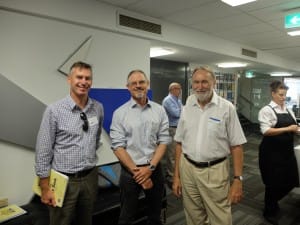
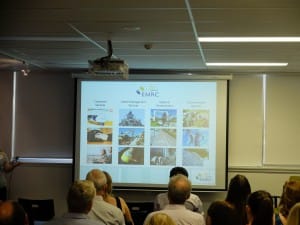
Professor Nigel Tapper from Monash University, the keynote speaker for this event, summarised the work being undertaken by the CRCWSC (in Program B – Water Sensitive Urbanism) to analyse the relationship between urban heat and human health. Professor Tapper provided a snapshot of the vulnerability maps developed through this research, which can identify the rates of urban heat mortalities and ambulance call outs for each of the states and territories. Professor Tapper’s presentation generated an interesting discussion amongst the participants about the possibility of further investigation into the over-concentration of built-up urban spaces and the specific application of micro-scale modelling in Western Australia.
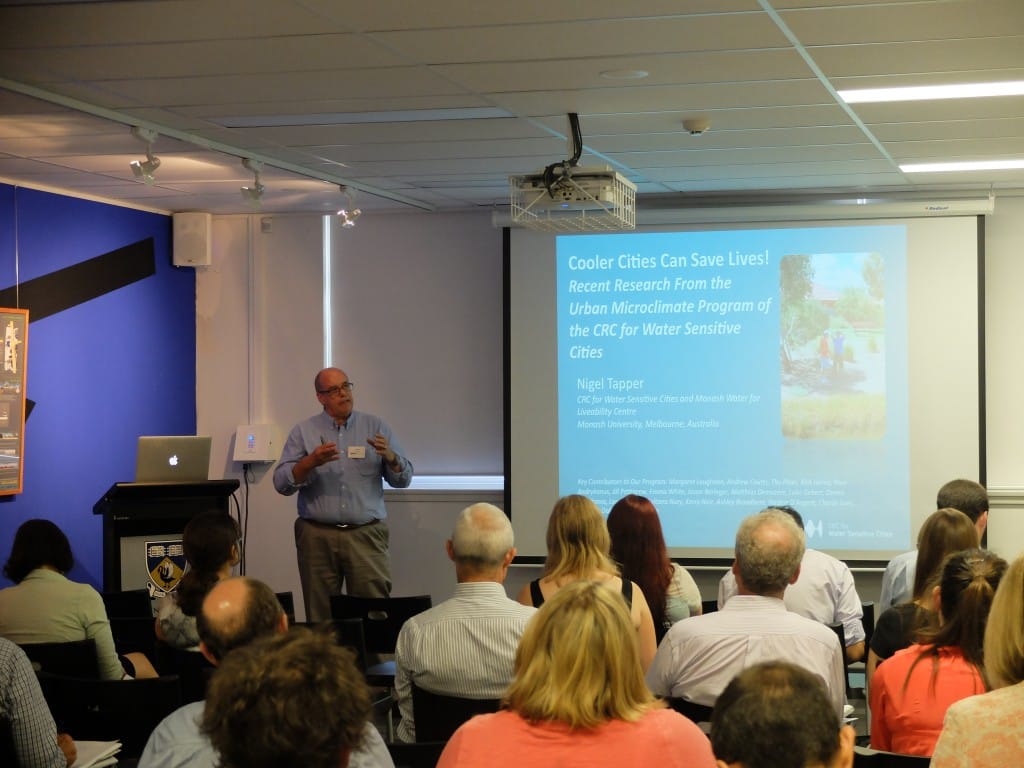
Professor Fiona Bull and Dr Paula Hooper, from the Centre for Built Environment and Health, provided insight into the mission of the Centre and how the designs of workplaces and communities have a direct relationship to both human and animal health. Dr Hooper also discussed her current research on public open space and the green neighbourhood.
The workshop concluded with a lively facilitated discussion session that centred on the importance of placement of trees, the effects of urban heat and micro-climate on social economies, the importance of educating policy and decision-makers in local governments, and linking research to site specific results. The discussion left participants with an enhanced understanding of urban micro‑climate and the effects on our cities.
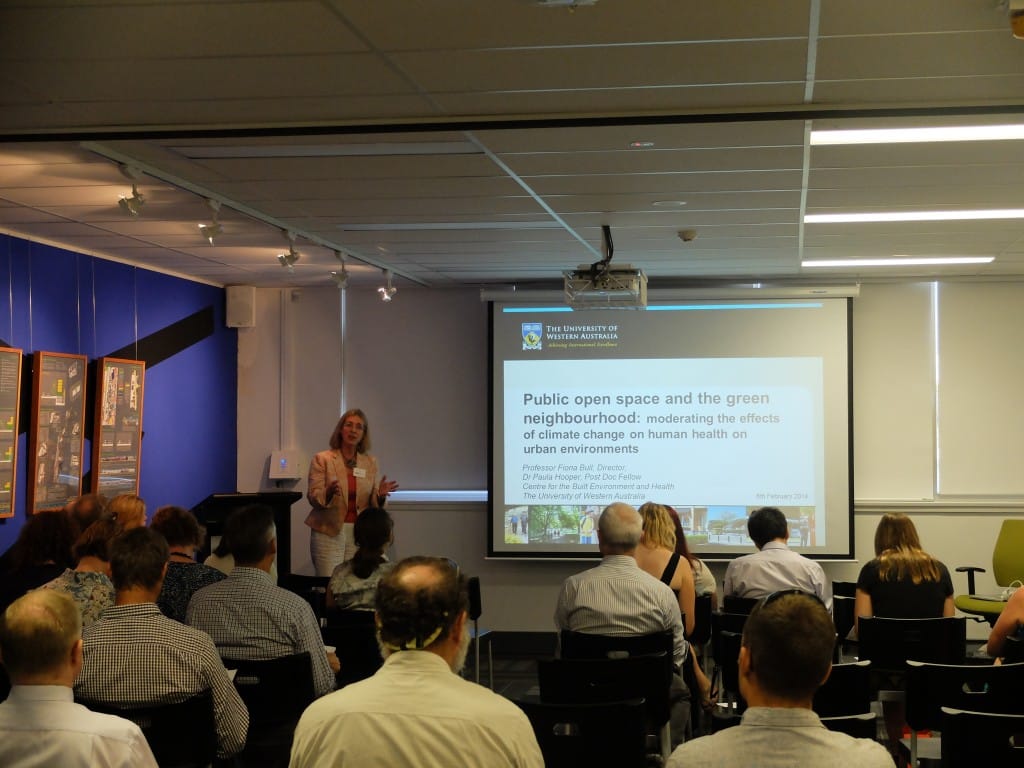
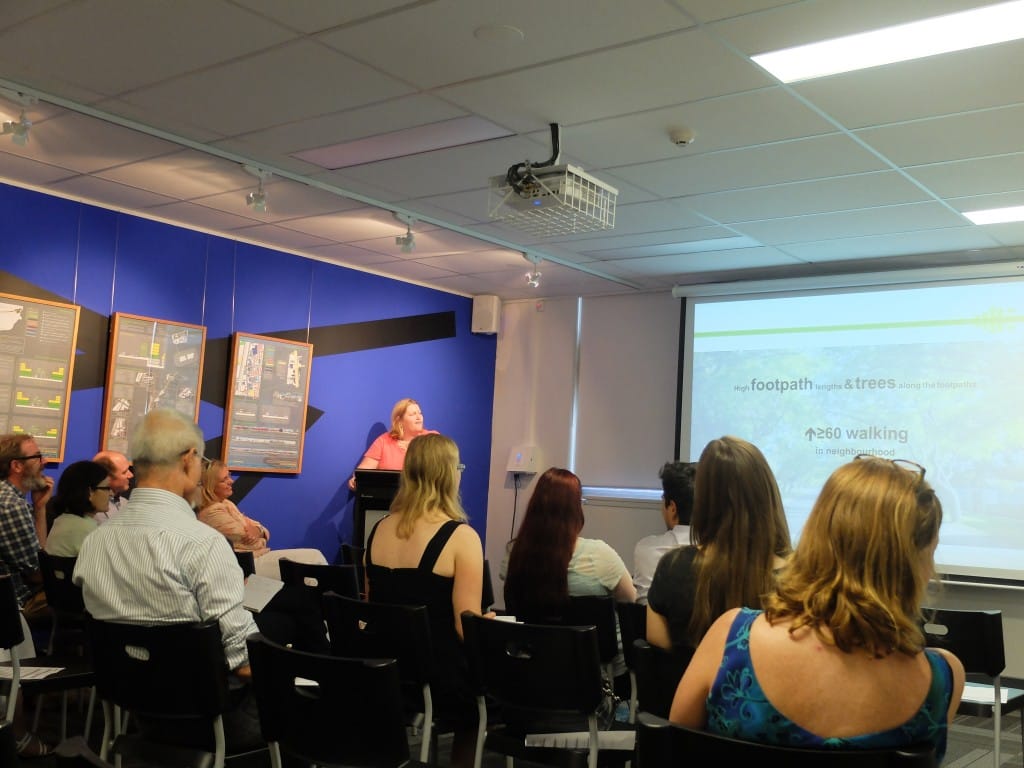
A number of follow-on conversations are currently happening between CRC researchers and industry partners about research on the practice of water sensitive urbanism in Western Australia. A number of research ideas are also being explored by the University of Western Australia researchers from the Centre for Built Environment and Health, led by Professor Fiona Bull.
Professor Anas Ghadouani, Regional Executive Director for the CRC for Water Sensitive Cities, stressed the importance of the research in micro-climate modelling in urban environments, especially in the context of a changing climate. “This research will strengthen and help implement the principles of water sensitive urbanism in Western Australia, with leadership from our partners,” said Professor Ghadouani.
Upcoming Western Region Events:
- Economic Modelling Workshop - March 6
- Governance and Planning Workshop - May 8
- Water Sensitive Cities Toolkit Workshop - July 8
- Science Forum - August 7
- Case Study I - September 4
- Case Study II - October 2
- Case Study III - November 6
- Perth End of Year Event - December 11